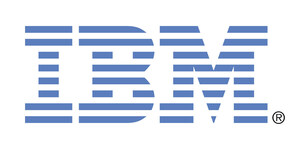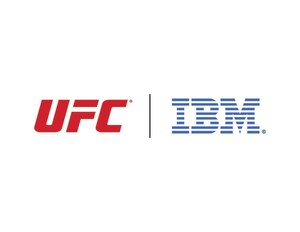LOS ANGELES, March 11, 2013 /PRNewswire/ -- Two years after Jeopardy!, IBM (NYSE: IBM) is putting Watson to work in ways that will forever change how business and healthcare leaders solve problems. While company researchers are hard at work developing new commercial applications for the cognitive computing innovation, IBM is also turning to brilliant young minds in academia for big ideas on where Watson should work next.
(Photo: http://photos.prnewswire.com/prnh/20130311/NY74759)
(Logo: http://photos.prnewswire.com/prnh/20090416/IBMLOGO)
How big? Imagine a Watson-powered system that could uncover data-driven insights to help medical professionals identify those who may be suffering silently from Post-Traumatic Stress Disorder, provide lawyers with faster research capabilities to improve their cases, and help businesses hire the best talent in the job market.
This is the magnitude of ideas sparked by more than 100 University of Southern California students who gathered recently to compete in the IBM Watson Academic Case Competition. A debut on the West Coast, the Case Competition put USC students in the spotlight to create business plans for applying Watson to pressing business and societal challenges -- and IBM business leaders were present and listening carefully.
IBM partners with thousands of universities to offer curricula, internships and hands-on experiences to help students learn first hand about new technologies in the fields of Big Data, analytics and cognitive computing. The company is at the forefront of creating a new workforce of Big Data trained professionals, from IBM's collaboration with Cleveland Clinic, which provides Watson as a collaborative learning tool for medical students, to its public-private partnership with the New York City Department of Education and the City University of New York to create the Pathways in Technology Early College High School program (P-TECH), which allows students to participate in a six year science and technology program and graduate with an associates degree for free in computer science or engineering.
To kick-off the competition at USC's campus, IBM provided students with a crash course on Watson's breakthrough capabilities, including a demonstration of how Watson is helping WellPoint, Inc. and Memorial Sloan Kettering Cancer Center improve the speed and quality of treatment for cancer patients. As the first cognitive computing system of its kind in the marketplace, Watson is able to understand and process the subtleties of human questions, sift through vast amounts of data, and use sophisticated analytics to generate fast, accurate answers for its human users. Watson also learns from its interactions, constantly improving with each use. This represents a major shift in organizations' ability to quickly analyze, understand and respond to Big Data, in industries such as healthcare -- and this is where student minds were put to the test.
As part of the competition, students were assigned into 24 teams and given 48 hours to define a new purpose for Watson, develop a business plan, and present it to a panel of judges comprising school officials, IBM executives and local business leaders. The challenge was unique among USC competitions because students worked toward a common goal with peers from other disciplines -- similar to how IBM combines the talent of business leaders and research scientists to develop its patented innovations.
To foster interdisciplinary collaboration, each team was required to have at least one business and one engineering member, from USC's Marshall Business School and Viterbi School of Engineering.
The student teams faced two rounds of judging based on four areas of criteria: how well the concept and supporting plan articulated and supported the team's vision; the feasibility of bringing the product or service to market and the supporting elements; the extent the proposed solution leverages Watson's key capabilities; and the team's presentation. Three winning ideas were selected by a panel of eight industry and faculty judges, including representatives from Bank of America, Ernst & Young, and IBM.
- 1st Place - Legal Research: Let Watson Do the Discovery for Your Next Legal Case - For corporate legal departments, building a case -- or defending one's own -- relies heavily on fast and accurate research. Past legal trials, court documents, articles and digital evidence: all of these materials can make or break a case, and together they comprise a sea of unstructured data that is both time-consuming and costly to pore through. The first place USC team proposed using Watson to process its users' research needs, based on its ability to think like a human, quickly sift through online legal documents for facts, and not only identify evidence to support a case -- but forecast its probability of success. The first place team's viewpoint: by placing Watson in charge of research, firms can recover time and costs, while delivering better legal outcomes. In turn, firms that leverage Watson's speed and efficiency can address the growing legal trend towards "flat fee" billing and research outsourcing.
- 2nd Place - Employee Training: Watson Uncovers the Keys to Success for Your Employees - According to the American Society for Training and Development (ASTD), 41 percent of employees at companies with inadequate training programs plan to leave within a year, versus 12 percent of employees at companies who provide excellent training and professional development programs. Conversely, the ASTD also states that effective employee training can lead to 218 percent higher income per employee and 45 percent higher shareholder return than market average. The second place USC team proposes that corporate human resource departments use Watson to optimize employee training, by crunching data pertaining to the employers' HR needs, the employees' career goals, and the range of training options available that can help both parties succeed. The second place team's viewpoint: by improving employee satisfaction and retention, a Watson-powered employee training system can also drive higher shareholder value.
- 3rd Place - Post-Traumatic Stress Disorder: Watson Helps Doctors Find Patients – It is reported that Post-Traumatic Stress Disorder affects nearly 7.7 million U.S. adults aged 18 and older. This includes people who have served in combat, experienced domestic violence, have been in car accidents, or other traumatic events. Many with PTSD suffer silently, including the 400,000+ U.S. veterans who have yet to be identified and treated, per the U.S. Veterans Administration. Thankfully, the catalysts behind this illness need no longer remain invisible -- due largely to Big Data. For example, there are now unprecedented amounts of data that accompany soldiers who return from war, from medical histories to information on combat experiences. The third place USC team proposes that physicians use Watson to identify people who may develop PTSD, by uncovering insights from data that can help piece together their personal story and shed light on pain he or she may be experiencing. The team's viewpoint: by helping physicians find and diagnose those suffering from PTSD, Watson can help medical professionals offer patients the treatment they deserve.
This competition is the latest example of how IBM is fueling innovation and working with students in higher education to hone valuable business skills that will shape the next generation of industry leaders.
"Partnering with universities such as USC gives IBM a unique opportunity to tap into the minds of our next-generation of leaders, whose training, skills and ideas for changing the world are all forward-thinking and based on a desire to make a meaningful impact," said Manoj Saxena, IBM General Manager, Watson Solutions. "These students see what Watson is doing right now and think -- how else will cognitive computing impact my life and career in the years to come? To us, that's exactly the mindset that should be fueling IBM innovations, and the very reason we host Watson Academic Case Competitions."
Due to the overwhelming response from USC students seeking to participate in the Watson Academic Case Competition, students had to join a waiting list, once the 24-team maximum had been reached. One faculty sponsor, noting that the level of interest was unprecedented for a campus case competition, predicted registration could reach 500 next year.
"For USC students, the opportunity to share their own ideas with IBM on how to commercialize Watson is truly a unique experience," said Ashish Soni, Executive Director of Digital Innovation and Founding Director of the Viterbi Student Innovation Institute at the USC Viterbi School of Engineering. "As educators, we're quite pleased to see students getting excited about cognitive computing innovation, because we know there's a business demand for the types of skills they get to showcase in Watson Case Competitions."
Watson - Building a New Big Data Workforce
It's no secret that employers across the U.S. are seeking job candidates who can analyze and build strategy around Big Data, or the 2.5 quintillion bytes of information gleaned from sensors, mobile devices, online transactions and social networks, to name just a few sources. A recent Gartner report estimates that 1.9 million Big Data jobs will be created in the U.S. by 2015.
The Watson Case Competition at USC, the third in a series hosted by IBM, is the latest example of IBM's work with academia to advance interest among students in Science Technology Engineering and Math (STEM) curriculums that will lead to high-impact, high-value careers. The competition is in keeping with IBM's Academic Initiative which delivers course work, case studies and curricula to more than 6,000 universities and 30,000 faculty members worldwide to help students prepare for high-value future job opportunities.
IBM worked closely with academic institutions during the development and introduction of Watson. Eight leading universities around the world participated in the development phase of the system; and more than 10,000 students watched Watson triumph on the Jeopardy! quiz show in February 2011. Most recently, IBM announced it would provide a modified version of an IBM Watson system to Rensselaer Polytechnic Institute, making it the first university to receive such a system that will enable leading-edge research by faculty and students.
The competition at USC marks the latest collaboration between the university and IBM. Over the last two years, students at the school's Annenberg Innovation Lab have been using Big Data analytics technologies to conduct social sentiment analyses and determine public engagement on topics such as sports, film, retail and fashion. Two of the biggest projects looked at Major League Baseball's World Series and the Academy Awards, projects developed for students to explore and expand their skills as they prepare for new data-intensive careers. IBM also collaborated with the USC Marshall School of Business for "The Great Mind Challenge," a global academic initiative focused on providing students with an opportunity to turn their social networking savvy into business ready skills to prepare for the jobs of the future.
For more information on the University of Southern California, please visit http://www.usc.edu
For more information on IBM Watson, please visit http://www.ibmwatson.com
For more information on the USC Viterbi School of Engineering, please visit http://viterbi.usc.edu
To join the social discussion about Watson include the hashtag #ibmwatson
Follow Watson on Facebook: http://www.facebook.com/ibmwatson
Media Contacts
Kristen Dattoli
IBM Media Relations, Watson
1 (617) 869-4378
[email protected]
Amy Blumenthal
Media Relations
USC Marshall School of Business
1 (213) 740-5552
Megan Hazle
Media Relations Specialist, USC Viterbi School of Engineering
[email protected]
1 (213) 821-5555
SOURCE IBM
WANT YOUR COMPANY'S NEWS FEATURED ON PRNEWSWIRE.COM?
Newsrooms &
Influencers
Digital Media
Outlets
Journalists
Opted In





Share this article